Sports journalist Sam Squiers shares harrowing pregnancy battle
Sports journalist Sam Squiers talks about how she overcame the fear and anxiety that gripped her as she coped with her two daughters’ unexpected health struggles.

Stellar
Don't miss out on the headlines from Stellar. Followed categories will be added to My News.
As she walked into the room for her 19-week pregnancy scan, Sam Squiers could almost feel her heart in her throat. While there were no obvious signs that something could be wrong with the health of her second baby, experience led her to be cautious, anyway.
She had been here before, in surrounds just like this, when she was given some bad news.
In 2017, Squiers had been told that her unborn daughter Imogen, now three, had stopped growing. The news knocked her and husband Ben for six.
“At 24 weeks they realised that my placenta hadn’t formed properly, and there were blockages in the umbilical cord, so nutrients weren’t getting to Immi,” she tells Stellar. “She was growing, but not at the rate she was supposed to be.”
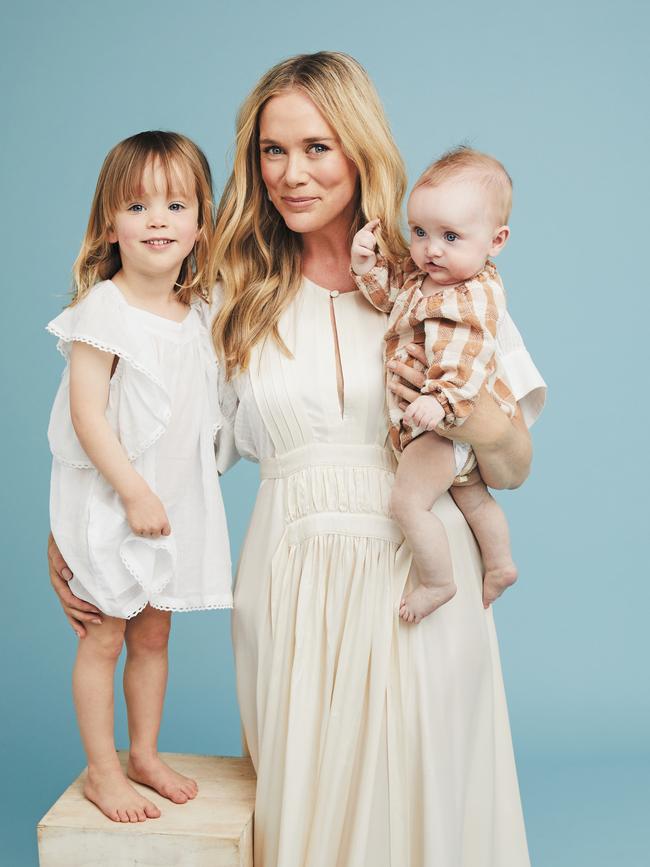
At the time, the Sydney-based TV host was living and working in Brisbane, where she was reading the sport on the Nine News evening broadcasts. One night, she had to do so after coming straight from hospital, where she had spent the previous few hours in bed with excruciating stomach pains.
Not long after that, only 32 weeks into her pregnancy, she woke up at 2.30am with the same searing pain. “Ben was down in Wollongong [where he works as a firefighter] so there was no-one at home,” she recalls. “The hospital told me to come in straight away.”
So Squiers took an Uber to the hospital, and was admitted with severe pre-eclampsia. At the same time, she suffered a placental abruption. “I was bleeding from inside my uterus, which was distressing Immi. They had to get her out.”
Imogen weighed just 1.3kg upon delivery, and was taken straight to the neonatal intensive care unit, while Squiers was separated from her newborn in the general intensive care unit. “After three days they wheeled my bed over and I got to hold her for the first time,” she says, her eyes welling up at the memory.
“Seeing mums who walked out of there without their babies and seeing all the hardship that some of those babies have had to go through makes you appreciate motherhood so much.”
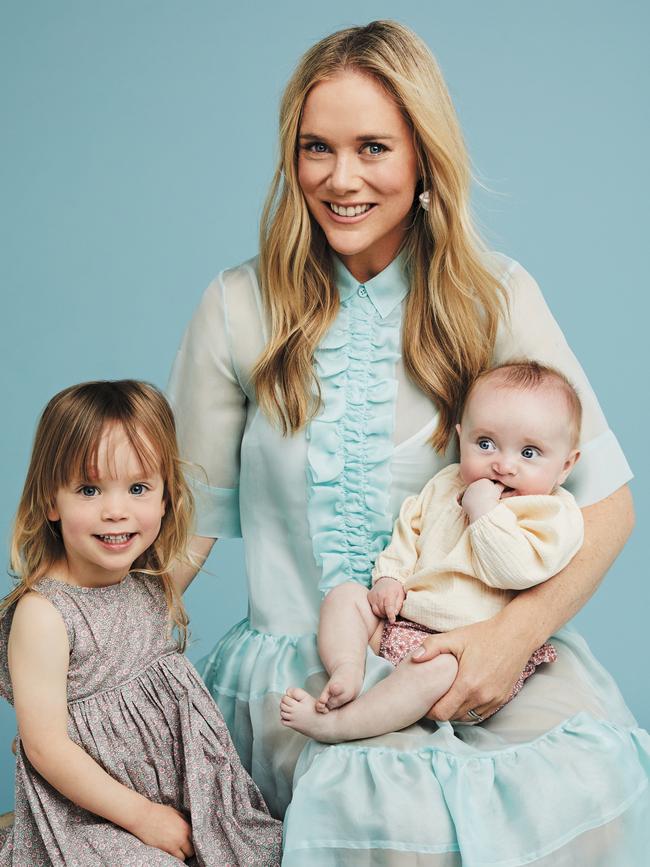
She returned to her job with the Nine Network, and when Imogen was a year old, decided it was time to bring her family back to New South Wales.
“Professionally it was a huge risk,” says Squiers, who’s also worked with Sky News, the Seven Network, Southern Cross Austereo and Germany’s Deutsche Welle.
“I’d worked really hard to establish a career in sports TV – it was something I’d aspired to for a long time.”
Last year, when she fell pregnant again, Squiers was understandably apprehensive. And by that scan at 19 weeks, her nerves were at fever pitch. Initially everything looked good, the baby was measuring well and Squiers began to relax. However, a final image of the baby’s face revealed a cleft palate.
“It was like the rug had been pulled out from under us,” Squiers tells Stellar. “We just wanted to have a pregnancy that was a smooth run and didn’t involve specialists and doctors and surgeons and hospitals all the time. But that’s not what we got.”
About one Australian baby in every 800 is born with a cleft lip or palate, which develops when parts of the lip, upper jaw or roof of the mouth don’t join properly in early pregnancy, resulting in an opening –or cleft.
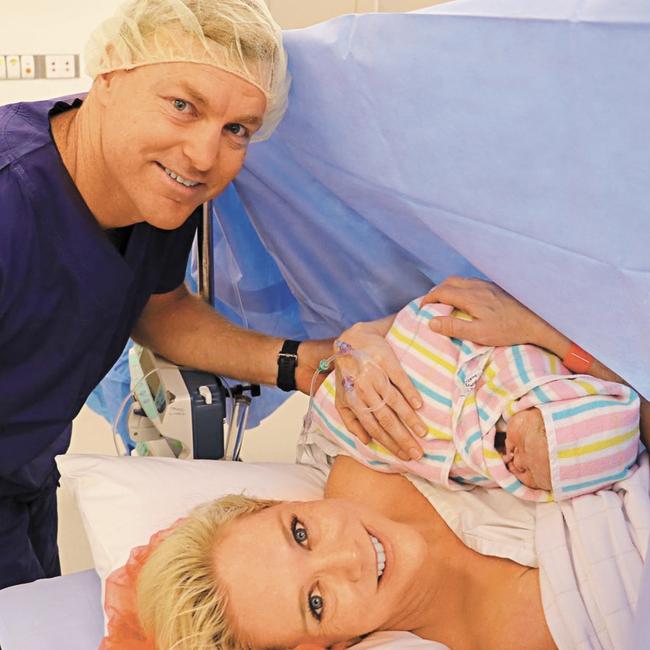
The news, Squiers explains, was hard to swallow because “I was already struggling with some ‘preemie mum’ guilt – you feel, as a woman, it’s your job to grow your baby, and I felt like I didn’t do my job properly with Immi, then I felt like I didn’t do my job properly in growing Elle.”
But when Elle was born in March this year, things fell into place. “I had this sense of being healed,” Squiers says. “She was this beautiful angel… and I just loved her so much.”
To correct the cleft, Elle will need to undergo at least three surgeries – the first took place in July, when she was just four months old.
“It wasn’t easy turning her over to the surgeons,” Squiers admits. “It was a long road to recovery as well, but Immi’s birth had prepared us for that. We’re used to hospitals.”
Now that she’s settled into a routine with her two girls, Squiers is juggling parenting with work. She’s continuing her role as an advocate for women in sport through Sportette, the think tank she founded in 2014, which allows her to challenge the way people think about the topic through summits, speaking engagements and seminars.
“I never tried to be one of the boys,” she tells Stellar. And in a male-dominated industry like sports journalism, she says, “I think women bring something really unique to the role – that’s our greatest strength.”
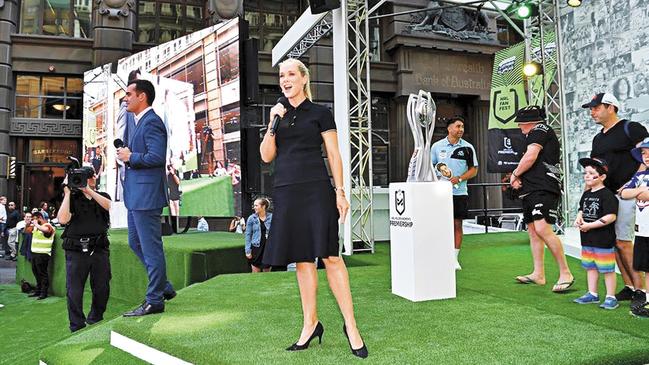
To that end, the 38-year-old has also written and released a new children’s novel called Princesses Wear Sneakers (which follows a princess who’s passionate about pursuing her dream of playing sport) and regularly emcees on the ground for the NRL.
However, she says it’s her podcast On Her Game, in which she interviews elite sportswomen like surfer Layne Beachley and rugby league player Hannah Southwell, that gives her the greatest professional satisfaction.
“I feel honoured that these women are sharing their stories with me,” she says emphatically.
While she’s always felt strongly about supporting female-focused sport, becoming a mum to two daughters has only reignited her dedication to the cause. “I’ve always talked about my passion in terms of doing something for the next generation. So, when I added two little girls to [that] generation, it really upped the stakes,” Squiers says.
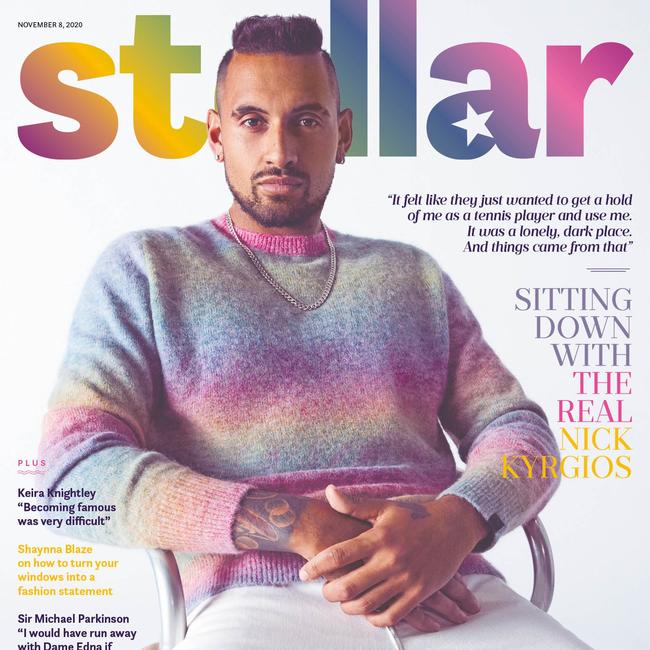
Plus, she adds, it’s been rewarding on both a personal and professional level.
“When I see women’s matches now, there’s not just little girls in the crowd – there are little boys, too. It makes me happy because these boys don’t see a female athlete, they see an elite athlete. They won’t think twice when they grow up to have a female boss or a female CEO. Women’s sport will be a catalyst for incredible change in our society.”
MORE STELLAR
Jayne Azzopardi: ’We experienced pregnancy loss and it’s agonising’
Exclusive: Cooper Cronk and Tara Rushton’s baby news
More Coverage
Originally published as Sports journalist Sam Squiers shares harrowing pregnancy battle


